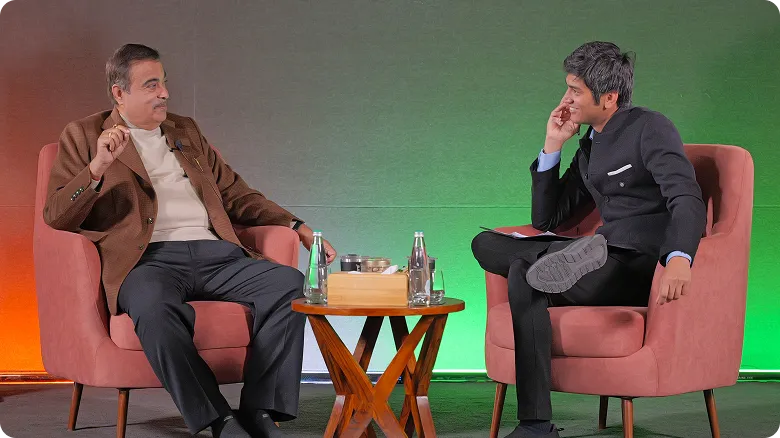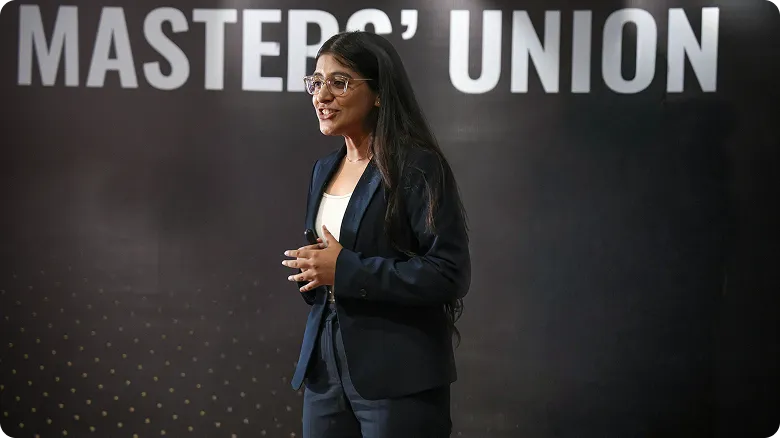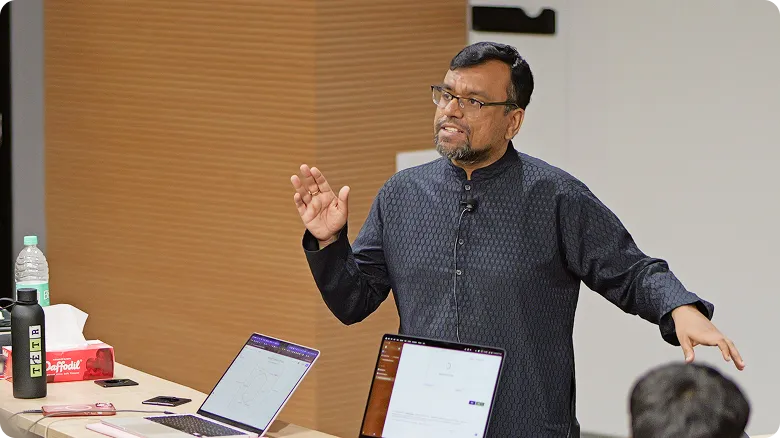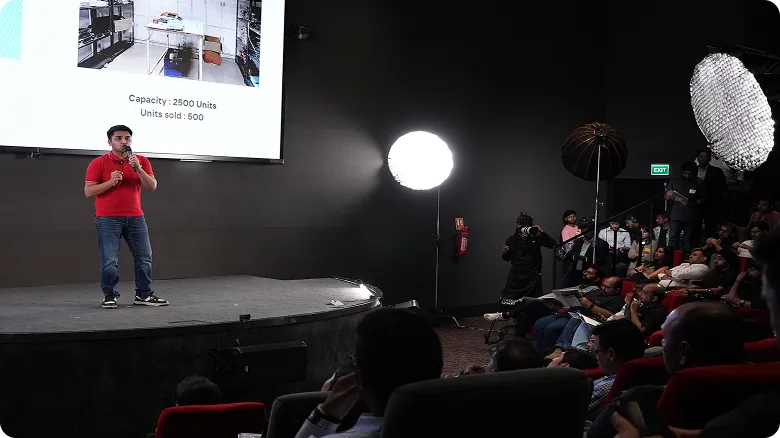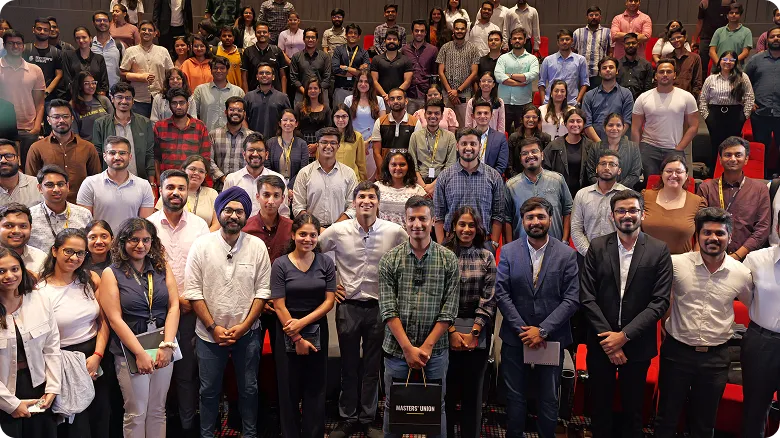Undergraduate
Undergraduate (Global)
Postgraduate
PGP in Technology and Business Management
PGP in Technology & Business Management
(Young Leaders Cohort)
PGP in Human Resources & Organisation Strategy
PGP in Sports Management & Gaming
PGP in Applied AI & Agentic Systems
PGP in UI/UX & Product Design
PGP in Sustainability & Business Management
PGP Bharat
Executive
Family Business
Careers
Innovations
Faculty
MU Ventures
Enterprise Education
Student Life
Jobs
Become a Master
events
For Companies
Blog
Business
Zupee’s CEO on How to Lead Online Gaming Market | Real Insights Unlocked
January 28, 2025
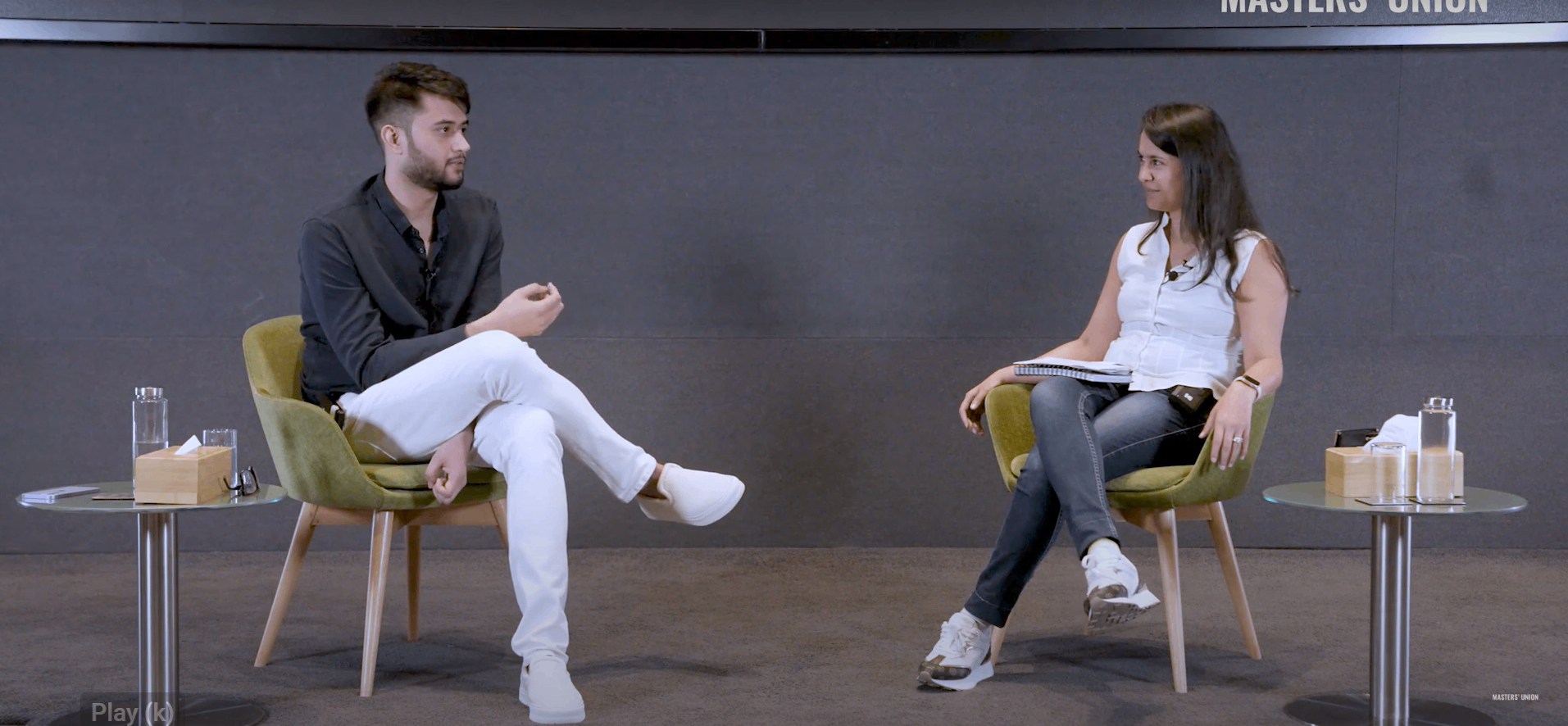
What begins as a childhood fascination can sometimes evolve into an empire. That is exactly what happened with Dilsher Malhi, the Zupee founder and CEO, who transformed his early love for games into one of India’s most successful online gaming platforms. In a session with Masters’ Union, he shared powerful lessons on entrepreneurship, growth, and building sustainable businesses.
From organizing pen-fighting tournaments in school to leading a platform that dominates India’s casual gaming industry, his story is both inspiring and instructive. With Zupee Ludo and other popular titles capturing over 95% of India’s casual gaming market, Malhi’s journey is proof that understanding human behavior, designing for engagement, and balancing growth with profitability are the cornerstones of long-term success.
Early Sparks of Entrepreneurship
Every entrepreneur has an origin story, and for Dilsher Singh Malhi, it began in Rajasthan. Unlike most children who played games purely for fun, he recognized an opportunity to turn play into structured competition. He organized pen-fighting tournaments, charged for participation, and created an early model of monetization.
This instinctive understanding of engagement and incentives gave him a head start in entrepreneurial thinking. His academic journey at IIT Kanpur further sharpened his problem-solving skills, analytical mindset, and ability to think in systems—skills that would later define the Zupee business model.
Snapshot of lessons from his early years:
-
Identifying opportunities where others see only play or leisure
-
Designing systems that encourage both participation and sustainability
-
Leveraging education not just for technical skills but for structured problem-solving
Building Zupee: From Startup to Gaming Giant
Founded with the goal of reimagining online gaming, Zupee today stands as a leader in India’s gaming ecosystem. With a $600 million valuation and a commanding 95% share in the casual and board gaming segment, it is one of the most dominant players in the industry.
While many startups chase growth at all costs, Zupee’s owner Dilsher Malhi emphasized profitability from the very beginning. His company scaled responsibly, balancing user acquisition with financial sustainability. Instead of burning cash, Zupee doubled down on engagement, retention, and meaningful user experiences.
What makes Zupee unique in the gaming industry:
-
Strong market share in casual and board games like Zupee Ludo
-
Profitability alongside scale—rare in India’s startup ecosystem
-
A focus on psychology-driven product design rather than trend-driven growth
Understanding Human Behavior in Business
For Malhi, the secret to building great products lies in studying human nature. Entrepreneurs, he said, must understand psychology, neuroscience, and anthropology if they want to design experiences that truly resonate.
In the case of gaming, the insights are clear—games work because they connect to deep human motivations like competition, achievement, and flow. By building products that align with these instincts, Zupee created experiences that keep users engaged for long durations.
Practical takeaways for entrepreneurs:
-
User behavior speaks louder than user feedback
-
Study disciplines outside of business—like psychology—to understand decision-making
-
Design for engagement, not just acquisition.
Redefining Product-Market Fit
Most founders consider customer feedback as the ultimate validation of product-market fit. Malhi, however, offered a different perspective. Words are not enough—behavior is what matters.
For example, rather than asking users whether they like a product, observe how much time they spend on it, how often they return, and whether they are willing to pay for it. True product-market fit is reflected in action, not opinion.
Insights to apply in any business:
-
Build metrics around behavior, not just surveys
-
Test products in live environments to track adoption
-
Real validation comes from repeated and voluntary user engagement
Balancing Growth and Profitability
In India’s startup ecosystem, scale often takes priority over financial sustainability. But Malhi warned against this mindset. Growth without profitability is fragile.
From the very beginning, Zupee’s business model was structured to ensure healthy unit economics. By monetizing efficiently and managing costs wisely, the company scaled while staying profitable. This discipline distinguished Zupee from other startups that struggled under unsustainable models.
Lessons for sustainable growth:
-
Profitability should not be an afterthought—it should be part of the plan
-
Scaling fast is meaningless without financial control
-
Long-term companies prioritize cash flow discipline
Navigating the Regulatory Landscape
The online gaming industry in India is heavily scrutinized, especially around the distinction between skill-based games and chance-based games. Malhi shared how Zupee has remained ahead of regulatory changes by focusing on responsible gaming practices and aligning its operations with legal frameworks.
This proactive approach helped the company build credibility and ensure long-term survival in an industry where many startups failed due to compliance issues.
Key points on handling regulation:
-
Anticipate changes and adapt before they become risks
-
Build a compliance-first culture in high-risk industries
-
Responsible practices build consumer trust and investor confidence
Beyond Gaming: A Higher Purpose
Malhi’s vision extends far beyond financial success. He believes technology, including gaming, should enhance human consciousness and engagement. Games can be tools not just for entertainment but also for learning, connection, and awareness.
By focusing on meaningful engagement, Zupee CEO Dilsher Malhi aims to create products that enrich lives, positioning Zupee as more than just a gaming company.
In short, technology should solve deeper human needs, not just entertain.
End Thoughts
The journey of Zupee founder and CEO Dilsher Malhi demonstrates that building a market leader requires more than a good idea. It requires a deep understanding of human behavior, a disciplined approach to growth, and a commitment to meaningful impact.
For students and aspiring entrepreneurs, his story highlights the importance of observation, adaptability, and sustainability in business. As Zupee continues to grow, it stands as proof that with vision and execution, even a childhood fascination can evolve into a multi-million-dollar enterprise.
FAQs
1. Who is the Zupee founder and owner?
The Zupee owner name is Dilsher Singh Malhi, who also serves as the company’s CEO.
2. What is Zupee’s business model?
The Zupee business model focuses on skill-based casual and board games like Zupee Ludo, combining monetization strategies with user engagement while maintaining profitability.
3. How much of the market share does Zupee hold?
Zupee dominates India’s casual gaming market with over 95% share.
4. What makes Zupee profitable compared to other startups?
Zupee prioritizes sustainable growth, disciplined cash flow management, and strong unit economics, avoiding the common trap of burning excessive capital.
5. Is Zupee Ludo legal in India?
Yes, Zupee Ludo and other skill-based games offered by the platform comply with Indian regulations, as they are categorized under games of skill, not chance.
6. What is the valuation of Zupee?
Zupee is valued at around $600 million, making it one of India’s leading online gaming platforms.
7. What lessons did Dilsher Malhi share with students?
He emphasized the importance of studying human behavior, measuring product-market fit through actions, balancing growth with profitability, and adopting responsible practices in regulated industries.







